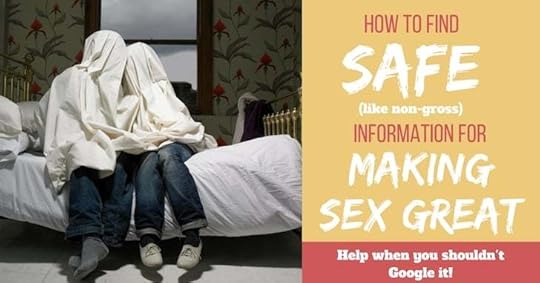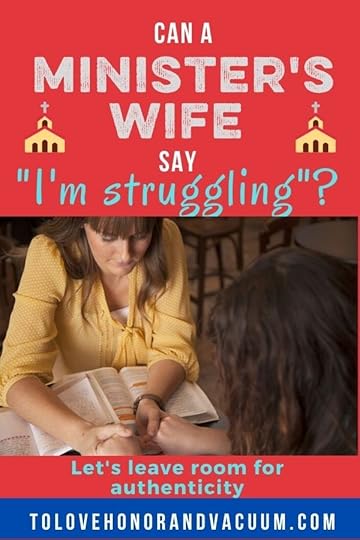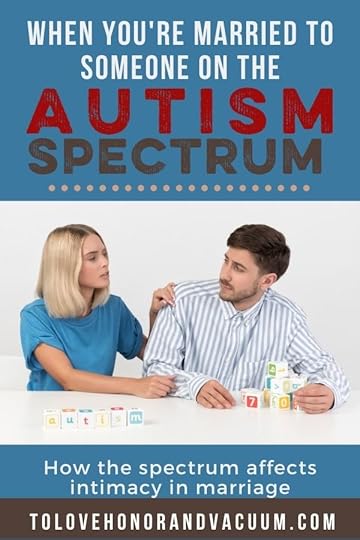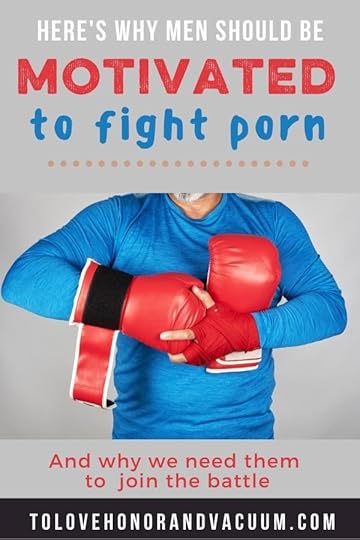Sheila Wray Gregoire's Blog, page 58
May 11, 2020
How to Tell Your Husband What You Want in Bed
How do you tell your husband what you want in bed?
It’s a scary thing, isn’t it? You have to be vulnerable and actually share something intensely personal. Here’s a letter I received from a reader:

Reader Question
My husband and I can talk about almost anything. It’s wonderful! But when it comes to needing to discuss things like sex, and telling him what I like or showing him I get so shy and nervous I get on the borderline of having a panic attack. I know now that I should tell him and ask him instead of just going along with whatever. But I’m so extremely shy about talking to him about it. A lot of little things bring me to the point of an anxiety attack, like the thought of doing it in the light, or him seeing my face with or without light or even me seeing his, (I’m also insecure about the way I react when I orgasm, I feel like I don’t react right, it’s hard to explain). How do I get over my shyness?
Great question, and a super common one that women face. After doing our surveys of 22,000 women earlier this year in preparation for writing The Great Sex Rescue, we found a lot of women who would be able to sympathize with what she’s going through. They feel really close in every other area of their relationship, but when it comes to sex, it’s hard to open up.
I think the root of this comes from two beliefs that we internalized:
We mistakenly believe:
Sex is mostly for men, and so their experience matters most. If we try to ask for something, then we’re being selfish.
Sex is something that “proper” girls don’t think about or talk about. If we want something, then we’re not really a “good girl”.
It’s very, very hard to get over those beliefs.
If you’re struggling with either of these, please read The Good Girl’s Guide to Great Sex! I explain what God made sex to be, and how it was created totally for you, too. Sex is not just for him, or even primarily for him. It’s for you to feel great and feel close to him as well.
And sex is not something shameful. There’s actually something rather “hot and holy” about sex, all at the same time. So relax if you can and read this!

God made sex to be AWESOME!
It’s supposed to be great physically, emotionally, and spiritually.
Feel like something’s missing?
Check out The Good Girl's Guide to Great Sex!
Okay, now let’s get back to the question at hand: how do you tell your husband what you want in bed?
Picture this scenario: your wedding night is here–all that hopeful bliss you’ve been promised your whole life. And, whether you’re a virgin or not, the earth doesn’t really move. You think to yourself, “is this all there is?” But you don’t say anything, because you don’t want to wreck your guy’s pride, after all. And then the honeymoon goes on, and the earth still doesn’t move, and you still don’t say anything because you secretly wonder if something’s wrong with you. He’s enjoying himself; why aren’t you?
Weeks go by. Then months. Maybe even years. You still find it hard to reach orgasm–or even to feel much pleasure. And you’ve never really told him, “I actually don’t like it when you touch my breasts like that. It’s too rough”, or “I really need you to pay more attention for longer to my clitoris before intercourse–but not so hard,” or “I’d actually like to try another position.” You’ve never said any of these things. And now you’re scared to, because if you do, isn’t it like saying, “we’ve been doing it wrong this whole time”?
I don’t think so, for two reasons. First, the vast majority of men honestly want to please their wives. Their pleasure is largely dependent on our pleasure. When we’re not having that much fun, they know, and it makes sex less exciting and a little disappointing to them, too. So they’d likely love some tips on how to make sex fun!
But more importantly, when you start sharing what you want, you open up to your husband. You become more sexual. And that’s sexy, in and of itself! When we’re honest, especially about something so personal, we will feel closer, and that makes sex hotter, too!
So today I’d like to share 10 ways, from easy to more challenging, to tell him what you want in bed–and to feel more adventurous!
I first ran this post a few years ago, but I wanted to update it and run it again because it’s an important one!
1. When he touches somewhere good, make sure he knows!
Moan a lot. Seriously. Say, “oh, yes, that’s wonderful”, or “right there, baby”. If you’re too shy to actually say, “I want you to do X”, then make sure that every time he comes anywhere near doing X, you moan and give him some positive reinforcement!
2. Guide his hand (or whatever else!)
Can’t say it out loud? Do a mime performance. Take his hand (or whatever else) and show him where you want to be touched. Be active! Don’t just lie there and let HIM make love to YOU; be an active participant and make things happen.
3. Be the one in control
Taking #2 a step further, if you’re the one initiating sex and running things, you can often make them go the way you want them to. So if you’re the one who starts making love, and you start rubbing against him, or climbing on top and changing things so the angle is just right, or taking his hand and showing him, that can work well, too. And then he knows more what turns you on when he sees the effect it’s having!
4. Play teacher
Decide that tonight you’re going to play “teacher”, where you instruct him for 15 minutes on what he’s doing, and he only gets his “prize” if he “passes”. This can be a fun one, because you can tell him, “not so rough”, or “slower”, or “more circles”, or whatever it may be. If you’re playing a teacher, then it is not always as intimidating. This often works well if you BOTH have a chance. You be teacher one night and he can be teacher the next night.
These scenarios where you’re the one in control are often easier for women who have sexual abuse in their background, too. It can be easier to let down your defences when you know that nothing will happen that you don’t want or haven’t asked for specifically.
5. Take lipstick and draw a treasure map where you want some attention
Want him to spend more time on foreplay and more time in certain areas? Take a lipstick and draw a treasure map on yourself. Start with 1 and work your way up to number 10, and he has to “connect the dots”, spending at LEAST a minute on each number. If you have a difficult time actually vocalizing what you want, giving him a map may make it easier!
Learn Great Sex Tips!


10 Ways to Make Sex Feel Amazing for Him

How to Find a Safe Place to Learn More About Sex

31 Days to Great Sex Challenge
6. Make him stay still and experiment with him
Sometimes we just don’t know what we want. We’re not sure what feels good. Using his body with the expectation that you will set the agenda can help you explore more without worrying that he’d rather just “get on with things”. So set the timer for 10 minutes, or 15 minutes, or however long you want and come toan agreement with him that under no circumstances is he to move–or even talk. If you get nervous about what he’s thinking or that he may not respect you or that he may think foreplay is silly, then having him talk can also get your anxiety level up again. But if he’s not allowed to move or say anything and you can just use any part of him that you want, then this can be much easier (you can tell him he can move his mouth if you put something there, for instance). But this lets you explore his body and figure out what you like about it, too.
Often when we make love we rush through, and then we don’t always figure out what’s really fun. Take the time to figure out what you actually like!
7. Show him what feels good yourself
This one takes some courage, and not everyone is comfortable doing it. But the vast majority of men really do enjoy it. Show him how you want to be touched by touching yourself. I’m not talking about full-blown masturbation here, truly. It’s just that if you can show him how you want him to touch you, then he may “get” it a little bit better.
Okay, those are 7 tips for helping him pay more attention to the parts of your body that want attention, in the way that it wants attention. But what if there’s more–what if you’d like to try something else, or you want to try a new position, or whatever? Read some of my posts on setting boundaries and what’s good and healthy in marriage and what’s not (you can see a bunch of posts listed under the right heading on my post with a summary of marriage advice), and then try these three things:
8. Sit in a bathtub with candlelight and talk to him about what you want sexually
If you want something but you don’t know how to tell him, here’s one way: sit in a bathtub together “spooning” so that you’re not looking at his face. Use candles so there’s no much light. Then try telling him. Don’t like the bath idea? Try in bed, in the dark, with him hugging you while you’re facing away. The three key ingredients here are: physical contact, so you feel accepted; little light, so you’re not as self-conscious; and not looking into his face so you’re not worried as much about what he’s thinking.
You can also make this easier by having him share something, too, so it’s not only you opening up.
9. Write down some new things you’d like to try
Another version of the above: Write down 3-4 things you’d like to try on small slips of paper, and have him do the same thing. Put your papers in an envelope and his in an envelope, and every few weeks one of you draws out a piece of paper and you do what it says. That way you’re each trying what the other person wants.
Again, if you have reservations about something, read what I wrote about deciding what’s okay to do in bed. You never have to do anything that you feel is degrading, sinful, or dangerous. But sometimes it’s nice to spice things up!
When we’re honest, especially about something so personal, we will feel closer, and that makes sex hotter, too!
(Click here to tweet this quote)
10. Leave some lingerie somewhere he can find it–with a note
Finally, this one isn’t for the faint of heart. But if you’ve been opening up with your husband more and telling him what you’d like, you’re likely finding that he isn’t taking it as an insult. He’s probably really excited about this turn in your relationship! So add to the fun by letting him know what’s coming. Leave him notes about what you want to do tonight in bed, or, even better, hide a piece of lingerie that you haven’t worn in a while (or a new item if you have the money) somewhere where he’ll find it, along with a note. Don’t put it in a place where he’d discover it with others there–like in his briefcase. But you can put it in a pocket, in his underwear drawer, in the passenger side of his car to see when he drives off to work, etc.
I guarantee most husbands would love it if their wives opened up and did more things like this. And if #9 and #10 are too much, that’s okay. Start with #1 and #2, and move you way down as you get more comfortable.
It takes a while to feel comfortable in our own skin with our husbands. For some of us it takes years! But the more honest we can be, the more fun we’ll find sex is, and the more intimate and close we’ll feel because we’re truly revealing a precious piece of ourselves–what makes us passionate and excited.
If you’re really struggling with full blown panic attacks, read The Good Girl’s Guide to Great Sex, and try to talk to your husband about it. Tell him what some of your roadblocks are. But then, please realize: you were created to enjoy sex. This is meant for you. Don’t let old beliefs that aren’t even right steal what God meant to be great. Start super small, with #1, and then see if you can work your way up as you gain more confidence.
So try telling your husband what you want in bed–and see what it does for your marriage!
And let me know: How do you get over feeling so shy and having those panic attacks? I’d like to write a whole post on that soon, too, so let me know your tips for learning to see sex in a healthy way!
May 8, 2020
Did Having to Be a “Sexual Gatekeeper” Affect You?
What happens when you feel as if you have to be the sexual gatekeeper when you’re dating?
I am living, eating, and breathing our book The Great Sex Rescue right now. I take time off to eat and to cook, but that’s it. I’m even writing it in my sleep (seriously, last night I dreamt our whole lust chapter).
It’s due in at the publishers next Friday, and we’re writing like crazy and trying to find stories and Joanna’s running stats and it’s exhausting. But I feel like it’s starting to really come together!
Here’s what I really like about this project: I don’t have to prove why an idea is wrong. I just have to give data.
I’ve been talking for years on this blog about why the idea that all men lust and that lust is every man’s battle is a toxic message. We’ve talked more recently about how the problem is that lust objectifies. We’ve talked about how noticing is not lusting. My husband even chimed in about lust and respecting women!
But what I can do in this book is sum up those arguments quickly, to be sure, but then say: When women hear the every man’s battle message, they’re less likely to orgasm. They’re more likely to have sexual pain. They’re more likely to feel distant from their husbands. They’re more likely to divorce. Etc. Etc. Etc. We’ve got the numbers. (And what’s cool about this particular belief is that it’s not just believing it that’s harmful; even hearing it is harmful.) It’s just toxic all round.
There’s another message that we’ve found to be quite harmful: being the sexual gatekeeper before marriage.
Well, actually, there are plenty of messages that we’ve found to be harmful! But I thought I’d throw this one out today, because we haven’t talked about it much, and Rebecca and I are likely going to record our podcast on it next week.
When women feel as if they have to be the sexual gatekeepers, to make sure that as a couple you don’t go too far before the wedding, it impacts your sex life after marriage.
That gatekeeper phenomenon is very hard to let go of.
Here’s what happens: you start making out, and the guy’s really into it. But you’ve been taught your whole life that guys can’t control themselves, and that they will want to push your boundaries. So you have to stay alert and make sure that doesn’t happen. You are the one who is responsible to make sure that it doesn’t get out of hand.
While you’re making out, then, he’s totally enjoying himself, getting into it. But she feels like she’s standing back, as if she’s an observer, looking at the whole thing from the outside.
Should I be stopping him yet? How about now? How about now? How about now?
And on and on and on it goes. She teaches herself to never give in to the moment, and to never allow herself to just feel. She must always be hyper-vigilant, or things will get out of control.
In my weekly email, that goes out on Fridays, I’ll be sharing some of our stats that we found regarding gatekeeping–including how it affects orgasm rates.
I often share extra information in those emails–info that doesn’t appear on the blog. If you’re not signed up yet for the emails, then hurry on over and sign up now!
When she marries, that “observer” role isn’t so easy to toss aside.
She’s so used to always judging what’s going on–“am I doing this right? Am I doing this right? How about this?”–that she can’t just let go and feel.
That’s often why women can have such difficulty learning to be aroused, we found, in both our survey and some focus groups. When you’ve trained yourself to be on alert, your body doesn’t automatically relax (of course with some women it might; but not all).
By the way, if you’re having trouble getting aroused, do try our 24 Sexy Dares! The 8 dares that the husband takes the lead on are focused on spending a lot of time on foreplay and helping you figure out what feels great to you. So they might help unlock that piece for you!
Does your marriage need some spicing up–and some fun?

Try these 24 dares–plus one bonus–to take your marriage to the next level!
Let's add some heat!
How did that gatekeeper role get started?
I think there were two twin beliefs:
Boys are likely to push your sexual boundaries, and boys can’t control themselves
Your purity is your most precious treasure
The purity message was largely aimed at women, and not men, too. Sure, guys were told to wait until they were married for sex, but it wasn’t phrased in the same way to them. We read one book that was big in the purity culture about finding a spouse, and twice it described a situation where two Christians were dating and they “went too far”, but their conclusion was that SHE had ruined her life. SHE had lost her most precious treasure. What about him? There were two people there, but the book assigned shame to only one.
I don’t have time to write all my thoughts on this (and I’d like to save them for the book), but I’d also love to hear your thoughts on this.

Did you feel you were in the gatekeeper role when you were dating? Do you think that affected your marriage? We’d love to hear your stories, so let’s talk in the comments!
May 7, 2020
The COVID Podcast: Can You Be Happily Ever After 24/7?
With COVID keeping many of us cooped up with our spouses and our kids 24/7, can we stay close?
On today’s podcast, we tackle some reader questions that came in about how to stay close even when you’re together ALL. THE. TIME.
Connor and Becca give some insight, and I answer some reader questions, too!
Listen in:
Browse all the Different Podcasts
See the Last “Start Your Engines” (Men’s) Podcast
Reader Question: What if you don’t feel sexy anymore?
A woman asks:

Reader Question
How do you feel sexy during quarantine? I need some practical tips and spiritual insight. (The hubs wants more sex–I am so not in the mood, since my hair has turned brown, my eye-lashes fell off, and I just feel GROSS.) The situation makes me think about how we tie up our sexiness in thought that we are/need to be pretty and that our partners need to think we are, in order for us to feel desired. But I know that’s messed up, so I don’t think it’s just a practical issue, I feel it’s spiritual issue for me as a woman. But I still don’t know how to get there, so could use some practical, theological direction.
I’d love your insight into this, too! A few quick thoughts:
I agree that beauty is not just skin deep. It’s what on the inside. But at the same time, I do think that how we take care of ourselves affects our libido. That’s not necessarily because we think we’re pretty; but more libido is tied to feeling turned on to life in general. When you stay in yoga pants and sweatshirts, it can feel comfy, but you don’t feel productive or energized usually. I think the more that we can use this time to feel like we still have purpose, like we can still be part of making the world a better place (even if it’s just baking bread or cleaning out a closet) the more turned on to our husbands we’ll be.
That being said, it’s just a really stressful time for a lot of people. Give yourself a break. Don’t be too hard on yourself.
And one more thing: If your husband wants sex, then HE thinks you’re attractive–even if you don’t! So try my 24 sexy dares, maybe just one a week? They can help you feel sexy, too!
Does your marriage need some spicing up–and some fun?

Try these 24 dares–plus one bonus–to take your marriage to the next level!
Let's add some heat!
Reader Question: How do we like each other when we’re together all the time?
A woman writes:

Reader Question
Hi, I would love it if you could address some ways to navigate quarantine and still be happy on the other side! My husband and I have been married over a decade and are really happy for the most part. I love having him around and he often worked from home before quarantine and we both love that arrangement but quarantine brings a whole new level of being in each other’s space alllll the time.
This might be fine if it were just us but add in a bunch of rowdy kids and a baby that hates sleep and it’s struggle street. We are exhausted and short with each other and things that don’t usually bother me are super irritating right now. Sex has taken a back seat because we are just so physically and emotionally drained all the time. Added to that is the fact that the baby has decided she won’t settle before midnight so there isn’t even any opportunity to have sex, even if we were in the mood. Not having the chance to do the things we would usually do apart that we enjoy is also not helping.
Any ideas that might help us connect and survive this time well??
I let Connor and Rebecca handle this, since they work from home together all the time, and they have a baby, too (though they don’t have the extra kids!).
Again, my short answer would be:
Have grace with each other. It’s just a tough time.
Realize that with all of you together, the house is going to get messier. Staying on top of that relieves frustration.
Plan downtime for both of you.
I’m eager to hear your tips, too!
Reader Question: How do I counsel a teen who was raped?
A sad question on a different topic:

Reader Question
How can I help a girl in our youth group who who gave in to peer pressure to drink, found herself waking up from passed out to being pinned down, hand over her mouth and being raped by a much older guy. She is young in her walk with Jesus crazy home life, and previous sexual abuse. She has wants to grow with God but has so many questions of why. I don’t want to lead this young lady wrongly and desire greatly to be able to help her and love her through this but feel at a loss. I also, had sexual abuse growing up so I can relate in some ways but hoping for more help.
My quick answer: Sometimes the best way to help is to point people who are really equipped to help. Help her report it to the police, if she wants. It can feel empowering to understand that this is serious, and you do have options. And then seek out a licensed counselor who knows about trauma therapy.
You may also enjoy:
The Body Keeps the Score: How Sexual Trauma Affects Us
Tiger King: Why We Need to Deal with our Own Stuff
10 Questions to Ask a Biblical Counselor to make sure they’re safe
COVID may be a great time for some of us to start professional counseling. Many counselors offer counseling via Skype, and many of us have time on our hands now. Think about reaching out!
And now I’d like to know: What are your tips for staying close in quarantine? How do we give ourselves grace, and our spouses grace? How do we turn on our libido when we’re home all the time? Let’s talk in the comments!
Author
Social Media
Sheila's Best Posts
Books
Courses
Freebie
 Sheila Wray Gregoire has been married for 27 years and happily married for 22! She loves traveling around North America with her hubby in their RV, giving her signature "Girl Talk" about sex and marriage. And she's written 8 books. About sex and marriage. See a theme here? Plus she knits. Even in line at the grocery store.
Sheila Wray Gregoire has been married for 27 years and happily married for 22! She loves traveling around North America with her hubby in their RV, giving her signature "Girl Talk" about sex and marriage. And she's written 8 books. About sex and marriage. See a theme here? Plus she knits. Even in line at the grocery store. Find Sheila Here:
Find Sheila Here:YouTube
Sheila's Favorite Posts on To Love, Honor and Vacuum:
10 ways to initiate sex
10 Effects of Porn on Your Brain, Marriage, & Sex Life
Why So Much Marriage Advice is So Trite
How can Sex be Hot and Holy at the Same Time?
Check out some of Sheila's Books:
The Good Girl's Guide to Great Sex
31 Days to Great Sex
9 Thoughts That Can Change Your Marriage
To Love, Honor, and Vacuum
Check out Sheila's Courses:
The Boost Your Libido Course
The Whole Story: Talking to Your Daughter about Sex, Puberty, and Growing Up
The FREE Emotional Intimacy E-Course
Are you ready to take your marriage to the next level?
Sign up for our emails and get access to the TLHV free marriage and parenting resource library. We have over 25 downloads and are constantly adding more. Sign up here!
May 6, 2020
Can We Just Call it a Vagina Already? Talking to Kids about Body Parts
I think it’s vitally important to teach kids to use the proper words for body parts, and particularly genitalia.
It decreases shame; it helps them understand their bodies; it can even help prevent sexual abuse.
We’re working really hard behind the scenes at To Love, Honor and Vacuum right now for our book deadline for The Great Sex Rescue, which is due in at Baker Books next Friday. Because of that, I’m not doing a normal “series” in May like I often do. I just didn’t have the time to organize a bunch of epic posts.
Instead, I’m just writing posts off the cuff about things that I’m thinking (and I’m glad the Tiger King one got so much engagement!).
But let me tell you another story about a news item I’ve been following, and how it made me think of the importance of using the real terms for body parts.
I’ve been following a rather sad and depressing story about Cedarville University, and I will try to make this short.
Anthony Moore was a pastor at The Village Church, when it was discovered that he had secretly filmed at least five videos of a young man he was mentoring while that young man was in the shower. When The Village Church learned of this, they fired him and announced that he had a moral failing and was disqualified from ministry. They did not, however, say publicly what that moral failing was to warn others.
Not long after that, Moore was hired by Thomas White, the president of Cedarville University (a Christian university), where Moore eventually worked as a professor, an advisor on diversity, and as a basketball coach. White knew of Moore’s past, and had sent a letter to the trustees explaining he had a five year “restoration” plan for Moore to go through while working at Cedarville.
Bloggers Todd Wilhelm, Julie Roys, and Dee Parsons recently broke this story, pointing out many inconsistencies in White’s description of the events. White fired Moore when this came to light, and the board has now placed White on administrative leave.
Okay, that’s the background. Now we get to what I want to focus on today.
In digging around more information on White, apparently the man ordered all professors to censor what they taught in class so that it fit with Philippians 4:8, and was only pure and good. One professor was shamed for giving a reading that contained a graphic description of child sex abuse. And he told professors that they should not use the correct terms for genitalia, but should instead refer to those areas as “the part of the body below the waist.”
Think about that for a moment. This is a university president telling professors that they cannot say the words “penis” and “vagina” and “vulva” and “foreskin” and “hymen” or whatever other terms you want to use to students who are adults.
And then we wonder why we have a problem with sexual shame in the Christian church.
Let’s be clear: When you aren’t allowed to say words for things, then what you’re saying is, “these things should not be talked about.” Without words, you make it much harder to talk about anything, and so taking away the words takes away the conversation. When you make something off-limits for conversation, then you attach shame to it. You say, “this isn’t appropriate to talk about or think about.” You give the impression that these things are somehow bad or shameful.
I’ve shared before how I was particularly bad at this with my kids.

Woo Hoo! Everything You Need to Tell Your Daughter About Sex, Puberty and Growing Up
One day we’re grocery shopping around a holiday, when the parking lot is packed. I’m unpacking the groceries into the car, while the girls are hanging on outside of it. And Rebecca says, in a very loud voice, “Mommy, why do you have hair on your bum and I don’t?”
Other shoppers stared at me and started to snicker. Was I really some werewolf under these mom jeans? Did I really have hair on my backside?
I wasn’t even sure what Rebecca was getting at, until it dawned on me…
I had never given her a word for female genitalia. She didn’t know how to say “vulva” or “vagina”. She just called the whole thing a bum, kind of like a big basketball that extended from the back to the front.
And I had never even realized I was neglecting such a big part of parenting.
I messed up, big time.
And I messed up in a ton of other ways, too (here’s a post on 10 mistakes I made telling my kids about puberty and sex).
The girls and I joke about this a lot, and it was in one of those joking conversations that I dared them to do it better, which is how The Whole Story, our puberty course for moms & daughters and for fathers & sons was born. (Or for single moms and sons!). My girls filmed the videos to tell your girls everything, and then discussion questions and mother-daughter activities invite you to continue those conversations. And our boys’ version features Sheldon Neil from Crossroads TV letting your boys in on The Whole Story, while my sons-in-law Connor and David share their experiences growing up.
And, yes, we use the real words for genitalia.
Plus we’ve got a super low COVID price, since this is an opportune time while you’re stuck at home doing sex ed with your kids to take the course!

Are you terrified to give your kids “the talk?”
We want to help. So we created The Whole Story: an online video-based course to help parents tell their children about sex, puberty, and growing up.
Let us start those awkward conversations, so you can finish them!
Learn More!
But giving kids the real words for body parts empowers them.
First, it gives them words to use if something bad happens.
They can tell you if anyone tries to touch them inappropriately, because they have words for those body parts, and they don’t feel like they’re somehow invisible or something to be ashamed of.
Second, it helps you talk about things in a matter-of-fact manner
If kids say, “how are girls and boys different?” Being able to say, “you have different body parts. He has a penis and girls have a vagina,” is a lot easier than “He has a ding dong and she has a hoo-haw.”
Or if your children self-stimulate (which many kids do!), it’s easier to talk about: “We don’t touch our penis in front of people,” or “It’s not polite to play with your penis (or your vulva) in front of people.” It’s less shame inducing.
You may also enjoy:
I Caught My 8-Year-Old Son Masturbating!
What do I do if my daughter touches herself?
There’s nothing wrong with cutesy words for body parts, too.
It’s okay to use cutesy words as long as the actual terms are also in the kids’ vocabulary. We call toes “little piggies”, but they still know that it’s a toe. So if you call it a “dingle-do”, a “little wean”, a “peenie-pooh”, that’s okay. Just make sure they also know it’s a penis!
I know it can feel awkward to use real words for body parts, especially if you didn’t grow up saying them. But practice makes things a lot easier! The more you say the words, the easier it will get. And the younger you start with your kids, the easier it will be.
Giving kids the real words for body parts empowers them.
(Click here to tweet this quote)
Seriously, there’s no reason on earth that university students should not use real words for genitalia.
The fact that in 2020 a university president is forbidding this is such an indictment of modern Christian culture, and we have to resist it. This causes such shame. It makes sexual abuse worse. It pushes problems underground.
God made our bodies beautiful, and that includes your penis, your vagina, your vulva, your clitoris, your foreskin, your frenulum, all of those parts. You were beautifully and wonderfully made. So were your kids. So are Cedarville University students. So let’s not live in shame!
And if you’re still struggling, check out our Sex Ed for Adults post, with stuff that all adults should know.

What do you think? What makes it easier to talk about body parts? How do you handle it with your kids? How did you grow up? Let’s talk in the comments!
Like this post? You should also check out:

The First Rule of Talking to Your Kids About Sex

10 Mistakes I Made When Giving My Kids "The Talk"
Author
Social Media
Sheila's Best Posts
Books
Courses
Freebie
 Sheila Wray Gregoire has been married for 27 years and happily married for 22! She loves traveling around North America with her hubby in their RV, giving her signature "Girl Talk" about sex and marriage. And she's written 8 books. About sex and marriage. See a theme here? Plus she knits. Even in line at the grocery store.
Sheila Wray Gregoire has been married for 27 years and happily married for 22! She loves traveling around North America with her hubby in their RV, giving her signature "Girl Talk" about sex and marriage. And she's written 8 books. About sex and marriage. See a theme here? Plus she knits. Even in line at the grocery store. Find Sheila Here:
Find Sheila Here:YouTube
Sheila's Favorite Posts on To Love, Honor and Vacuum:
10 ways to initiate sex
10 Effects of Porn on Your Brain, Marriage, & Sex Life
Why So Much Marriage Advice is So Trite
How can Sex be Hot and Holy at the Same Time?
Check out some of Sheila's Books:
The Good Girl's Guide to Great Sex
31 Days to Great Sex
9 Thoughts That Can Change Your Marriage
To Love, Honor, and Vacuum
Check out Sheila's Courses:
The Boost Your Libido Course
The Whole Story: Talking to Your Daughter about Sex, Puberty, and Growing Up
The FREE Emotional Intimacy E-Course
Are you ready to take your marriage to the next level?
Sign up for our emails and get access to the TLHV free marriage and parenting resource library. We have over 25 downloads and are constantly adding more. Sign up here!
May 5, 2020
A Minister’s Wife Admits, “I’m Struggling.” Can You?
When you’re a minister’s wife, it can be hard to be vulnerable and authentic.
I have been friends with many pastor’s wives over the years, and the amount of scrutiny and judgment they go through is huge. If their kids act up in nursery, it causes a stink that it wouldn’t if it were other people’s kids. It’s tough.
When I started writing back in the early 2000s, I attended a Christian writer’s conference here in Ontario, where I met Karen Stiller, an editor at a big magazine, but also the wife of a minister belonging to a well-known Canadian Christian family. She was smart, gentle, and compassionate, and she thought deeply about spiritual issues. But she was also a lot of fun, and we became fast friends.
We don’t see each other often (we’ve never lived near each other), but we’ve kept up with each other. In many ways, Karen set me on the path I’m on now. In 2006, I believe, she asked me to write a cover story for Faith Today, Canada’s national Christian magazine where she was an editor, about sex. I hadn’t written on it much yet, but she needed SOMEBODY. From there, I was asked to write for some Christian men’s magazines, and whenever Crossroads TV in Canada wanted a guest to talk about sex, they had me.
If it hadn’t been for that, I may not have written The Good Girl’s Guide to Great Sex.
All that is to say that I love Karen, and I’m so excited about her new book, The Minister’s Wife, which launches today. It’s her memoir of holding on to faith and family in a strange role that no one is really prepared for, and I know many of you reading will relate. I asked Karen to share about authenticity today, and here she is!
There was a woman in a church my husband once served as a young associate pastor, who was kind and generous to me and our small children.
She would arrive every Tuesday afternoon at the rectory in which we lived – which was located in a much nicer part of the city than we ever could have afforded ourselves – and babysat our three kids, so I could have a few precious hours to myself.
Usually, I went grocery shopping. Back then, when I could go alone, a trip to Stan’s No Frills groceries was as restful and exciting as a trip to the spa, or so I imagined (a trip to the spa being as unlikely as a trip to the moon back then).
We would also have a cup of tea and talk about this and that, and one week we touched on envy, for a reason I can’t remember now. I confessed to my older friend that sometimes I envied people who seemed to have so much more flexible income than we did, and were able to buy things like good, thick leggings and better coffee without a second thought.
“Oh Karen,” she said. “Don’t say things like that!”
I could see she was embarrassed for both of us that I had made such a bald statement. Shame, my old companion, appeared almost immediately and smothered me with his heavy, wet weight, like so much emotional concrete. I wished I hadn’t said a word.
In the days to come I experienced what shame and vulnerability researcher Brené Brown so helpfully and precisely calls a vulnerability hangover.
Yes. I was hungover with vulnerability.
While it is true that we should wisely choose our audience for our most naked soul moments, I have learned that vulnerability is worth the risk, even if we sometimes make mistakes. If I could go back in time, I would not share with my wealthier and very generous friend that I sometimes sank into envy. That conversation didn’t help either of us.
But my experiences with vulnerability and transparency have also taught me the opposite lesson time and time again, and I am so glad. The lightness from sharing has mostly outweighed the heaviness of shame.
It is good to share the truth about ourselves.
Being married to a minister – a vocation that can bring with it a heavy load of assumptions people make about you and sometimes your spiritual giantdom (for example, that you would never be a person wracked with legging envy) – means that I have been forced to face my true self over and over again.
Someone may assume I’m deeply self-sacrificial and always ready to lend a hand, and perpetually pleasant and never envious. I know I’m grouchy and selfish and as covetous as the next person in the pew, and often very tired, to top it all off. I choose to tell the truth about myself to help us both recover.
Even though I’d really like to be more like the ideal, we all fall short and fall on our face, and then, later and hopefully, on our knees to ask for a little more help, pretty please.
And so, even though sometimes we overdo it and might wind up with the throbbing headache and dry mouth of a vulnerability hangover, I have chosen the path of transparency more times than not. To say what I’m really thinking, and say out loud who I really am, has been a survival strategy for me but it’s also, I’ve come to believe, been a kind of gift and relief to my communities, when used well.
I remember one Bible study in particular, years ago, in the basement of our church. I love women’s Bible studies, for the motivation they give me to read Scripture regularly, for the break from my work, the gathering and the gabbing, and yes, for the lemon squares with their wonderful crust and tangy fillings.
One day we were studying a tough passage, one of those ones that you know you’re supposed to believe and embrace, but it’s so hard. I don’t get this.
I said this out loud.
Sometimes, because you’re married to the minister, people assume you will get it, and love it, and understand it, and be able to preach it as well, if your husband is down with the flu. But that day, that simple bit of honesty opened the room up. “Oh Karen,” said one of the women (in a good way). And someone else said, “I love you.” I knew what she loved was that I had dared to tell the truth, and so, because of all those wrong ideas people have about clergy always having it all together, it helped her in some small way to hear me say that I didn’t understand either.
Then, we could have an honest conversation about a tough passage, and move through that discussion to a richer understanding. Then, there was space for all of us there, in that room, and in that conversation.
Honesty begets honesty. Transparency creates transparency. This is true for all of us, almost all of the time.
Vulnerability does not have to lead to a hangover, after all.
Ultimately, what our honesty brings us is space in the room. Our true stories connect us to each other, and help us to live through the most difficult things, and to know we are not alone. Women can be so good at this, at opening our hearts and our most tender selves so that a friend can say things like: I hear you and I understand. I’ve been there too, and friend, you’re actually not that bad.
It will all be okay.
Read more of Karen’s insights and experiences in The Minister’s Wife!
See it on Amazon!

Have you ever had to maintain a “role” in Christendom that was difficult? Are you a minister’s wife? Let’s talk in the comments!
Karen Stiller is a writer and editor, and author of the newly released spiritual memoir, The Minister’s Wife: a memoir of faith, doubt, friendship, loneliness, forgiveness and more (Tyndale House, 2020). For anyone who has ever struggled to maintain authenticity when a role is thrust upon her, this is a great read (along the lines of Jan Karon!). Find more here!
Karen Stiller
May 4, 2020
On Tiger King, Brokenness, and Seeking Help
So during COVID, my husband and I, like many around North America, watched the complete and utter train wreck that is the Netflix series Tiger King.
It depicts something so unbelievably awful that you almost can’t turn away (although turn away I finally did. I only made it through episode 5 1/2; all the swearing, etc., finally just got to me, and I felt like I at least understood enough of what everyone else was talking about that I could walk away).
And this is NOT an endorsement of Tiger King, or saying that everyone should watch it. The language is atrocious (and while I don’t mind people swearing in front of me, the sheer volume of it can be too much eventually for me). There are a LOT of women running around in tiger bikinis. There are extremely questionable life choices, to put it mildly. I understand people steering clear.
But apparently this series is even more popular in Canada than in the U.S. (perhaps because Canadians relish the chance to stare at strange Americans?), and so we watched.
I don’t want to comment here on Carole Baskin too much; I do think that Netflix slanted its coverage, and in doing some more reading, things are not as black and white with regards to her as they make it seem. I just want to talk about everyone else.
As a teen and young adult, I had a real fear of alcohol. I had a real fear of people getting drunk and a little out of control. While others may have found drunk people or high people funny, I just found them scary. Being around anyone like that made me feel profoundly unsafe and panicky, for reasons I still can’t fully explain.
Because of that, perhaps, I’ve always judged alcoholics or those who use drugs a little too harshly, I think.
In watching Tiger King, my real feelings were profound pity and profound sadness.
I kept asking, as each character came on screen–whether it was Joe Exotic himself, or any of his many “husbands”, or any of Doc Antle’s women, “who hurt you?”
I saw Joe Exotic trying so hard to be the best; to be admired; to be famous; to be loved; to not be laughed at. And the harder he tried, the bigger the hole he dug for himself.
And he surrounded himself with people who would look up to him and hang on his every word. He collected wounded people who would need him, whether it was ex-cons with no prospects or drug addicts who were so wounded he could even manipulate their sexuality.
And I saw all of these women in Doc Antle’s “harem” living in what is basically a sex cult, without even realizing it. What makes a young woman give up everything and give her life over to someone else to control? Profound brokenness and woundedness.
(The only one in the series I didn’t feel particular pity for was Doc Antle, whom I believe is actually evil. But that’s not the subject of this post).
Most of them, it seemed to me, were absolutely desperate. They were doing everything they could, keeping as busy as possible, surrounding themselves with as many other broken people as possible, numbing themselves with drugs and alcohol and sex and danger, so that they wouldn’t have time to confront their inner world of fear and loneliness.
This is going to sound so terrible of me to say, but it was one of the first times I honestly looked at drug addicts and had pity rather than a degree of condemnation. I think in some way Jesus used this series to wake me up to how I can be judgmental. It made me understand more why Jesus would hang out with tax collectors and prostitutes and “sinners”. They were just very wounded people, that’s all.
Sin tends to be caused by one of two things, I think: woundedness and selfishness.
I am not saying that the wounded are not morally to blame for things. But I do feel like there is a difference between one who has been profoundly wounded and one who is acting primarily out of selfishness and evil. The effects of acting out of woundedness can be just as evil and just as devastating–what Joe Exotic did especially to Travis and John was pure evil. But I can understand better his motivations.
And woundedness seems to attract the wounded.
I was talking to my daughter Rebecca last week about how both she and Katie zeroed in quite young and quite quickly on men who were NOT very wounded, and who had good character. Why was that? Because they were raised healthy, and when you’re healthy, you gravitate towards other healthy people.
But when you are not healthy, too often we repeat similar dynamics in our relationships. Those with bad relationships with their fathers tend to marry husbands who will make them feel the same way. It’s quite tragic, really.
And you see this in all the characters of Tiger King. Even Carole Baskin’s first husband (if I can go there) apparently married his first wife when she was 14 and he was 17. What kind of a parent gives permission for their 14-year-old daughter to marry? That’s profoundly messed up. (And don’t tell me that was normal back then; I’ve been doing a ton of genealogy lately, and it was never normal to marry when you were 14 in the west).
What is my main take-away from Tiger King?
Deal with your stuff. Seriously. Please, please deal with it.
Maybe you’re in a bad marriage because, in your woundedness, you chose another very wounded person. Seek licensed counseling (many will do counseling by Skype, so this is a actually a good time to start!). Get healthy yourself. Surround yourself with a healthy support system. Cut yourself off from toxic people or toxic family members or anyone who encourages you to deal with your woundedness in counterproductive ways.
Please, get healthy as much as you can, so that your kids can change the pattern.
I know it’s hard. I know that when we’re scarred and wounded, it can seem like too much work to get to the bottom of it. Counseling can often be expensive. But if you can swing it, it is so much cheaper to spend a few thousand dollars on counseling now than it is to deal with this for the rest of your life and see relationships blow up.
If you just can’t, then read some great books about trauma, getting over shame, or dealing with toxic relationships, like these ones:
Dealing with Toxic People and Relationships
When to Walk Away
Boundaries
The Emotionally Destructive Marriage
Is It Me? Making Sense of your confusing marriage
Dealing with Trauma
The Body Keeps the Score
Try Softer
The Wisdom of Your Heart
What is a Girl Worth?
I asked on Facebook for some recommendations for books, and there are some great ones on this thread. I didn’t want to put them all here because I haven’t vetted them, but you can check them out (always read bad ratings on Amazon to see if they resonate with you before buying a book that deals with trauma or abuse!).
Oh, and PS: playing with tiger cubs should be against the law. Period.
What do you think? How can people best deal with deep hurts? And do you have any resources to recommend? Let’s talk in the comments!

 Boundaries in Marriage
Boundaries in Marriage Is It Me? Making Sense of Your Confusing Marriage
Is It Me? Making Sense of Your Confusing Marriage The Emotionally Destructive Marriage
The Emotionally Destructive MarriageWhen You Need to Have Hard Conversations:

Are You a Spouse or an Enabler?

When Your Husband Refuses to Talk about Important Things
Author
Social Media
Sheila's Best Posts
Books
Courses
Freebie
 Sheila Wray Gregoire has been married for 27 years and happily married for 22! She loves traveling around North America with her hubby in their RV, giving her signature "Girl Talk" about sex and marriage. And she's written 8 books. About sex and marriage. See a theme here? Plus she knits. Even in line at the grocery store.
Sheila Wray Gregoire has been married for 27 years and happily married for 22! She loves traveling around North America with her hubby in their RV, giving her signature "Girl Talk" about sex and marriage. And she's written 8 books. About sex and marriage. See a theme here? Plus she knits. Even in line at the grocery store. Find Sheila Here:
Find Sheila Here:YouTube
Sheila's Favorite Posts on To Love, Honor and Vacuum:
10 ways to initiate sex
10 Effects of Porn on Your Brain, Marriage, & Sex Life
Why So Much Marriage Advice is So Trite
How can Sex be Hot and Holy at the Same Time?
Check out some of Sheila's Books:
The Good Girl's Guide to Great Sex
31 Days to Great Sex
9 Thoughts That Can Change Your Marriage
To Love, Honor, and Vacuum
Check out Sheila's Courses:
The Boost Your Libido Course
The Whole Story: Talking to Your Daughter about Sex, Puberty, and Growing Up
The FREE Emotional Intimacy E-Course
Are you ready to take your marriage to the next level?
Sign up for our emails and get access to the TLHV free marriage and parenting resource library. We have over 25 downloads and are constantly adding more. Sign up here!
May 1, 2020
When You’re Married to Someone on the Autism Spectrum
We used to call it Asperger’s (like what Sheldon has on The Big Bang Theory). But now the correct term is high functioning autism spectrum. And it has a big impact on marriage!
Recently I was putting together my focus groups for our book The Great Sex Rescue, and I reached out to some of those who had taken our survey for more information. One woman shared her story with me, thinking that she was not alone and that others needed to hear this, too.
She writes:
In my case, it was a “hidden” disability that we didn’t discover until we were 33 years married – high functioning autism, formerly known as Asperger’s Syndrome.
The condition affects my husband in subtle but profound ways. He can understand that a husband should behave in certain ways, but cannot sense when or how or what to do.
Because we didn’t know about the disability, our marriage was so emotionally and sexually dissatisfying to me that I developed severe depression within the first five years. I knew my husband cared and wanted me to be happy, but he never followed through on what I told him I needed. The only way I could interpret that was that he just didn’t care enough.
We would have sex, but I rarely felt that we made love. I wanted to be pursued, but sex usually happened “by accident” – a kiss goodnight in bed would develop into more. Even then, the accidents didn’t happen half often enough for me. And the encounters were relatively short because he can’t maintain a firm erection for very long. So I would often “let” him climax long before I was ready to. He was willing to touch me to climax, but his mental disability left his efforts mechanical and not always effective.
Even with all that, my high libido meant I could achieve arousal easily and orgasm frequently; but as I got older, climax would require serious mental gymnastics – imagining my husband being romantic or more sensual to stir up my arousal.
When my orgasm rate declined, between 25 – 30 years married, sex (when it did happen) became more and more one-sided in his favour, and less frequent because I was fed up with all the effort I had to put in just to feel aroused, never mind orgasm. I didn’t mind that any particular encounter ended without me climaxing, but I got frustrated that my husband wouldn’t make a point to try to balance the scales the next time. Again, I thought that I just didn’t matter enough for him to put any effort into my needs.
So, now that I’ve had three years to learn about high functioning autism and how it affects my husband, I can see how my perfectly normal expectations of a husband were impossible for him to fulfill. Although he understands the concepts, he will never know how to seduce me, make me swoon, how to behave like a “sexy beast”. I will never hear sweet affirmations or ardent desire whispered in my ear, never feel cherished, or needed for anything more than what his mother did for him.
As we’ve learned about his condition, there have been so many “aha! that’s why…” moments. It’s been a relief to us both in many ways. I’ve learned to accept the many things he does do for me as his expression of love. I also now realize that my role as the helper suitable for him is to be the cheerleader, the coach, the guide, the initiator, in all areas of life. Except sex.
As I already mentioned, it was becoming harder to get myself aroused, so I told him one day (pre-diagnosis) that I needed him to step up and make my sexual satisfaction more of a priority. I was no longer able to keep running the show. And shortly after that, we stopped having sex. That was three or four years ago. I can see now that he doesn’t know how to “step up”. But I don’t think I can function sexually if he doesn’t. So, we just don’t.
I know that in many ways I have to be my husband’s caretaker, and I can see God’s hand in this because I’m skilled in the areas my husband is not. And my husband is still my best friend, so I’m happy to be here for him. But the depression still plagues me, though not as severely and not for the same reason. I used to believe that I wasn’t important enough for my husband to cherish me. Now I grieve because I know he will never be able to give me the kind of relationship I have longed for. We will never be deeply intimate. Just friends, without benefits.
So Sheila, I’m telling you this story because I can guarantee that you have followers struggling with intimacy because one of the partners has un-diagnosed autism, usually but not always the husband. This level of autism is very hard to notice in children, often because there aren’t the same language delays that can accompany more obvious autism symptoms. That means there is a large group of adults whose behaviour is slightly “off” but no one can quite pin down why. They are dismissed as belonging to the slightly-odd end of the normal bell curve. But even mild autism is a whole different thing than slightly-odd. If my husband and I had known in the beginning what we know now… It’s not that he wouldn’t, but that he couldn’t.
This has been my experience with an un-diagnosed autistic husband. Mileage varies wildly. They say if you meet one autistic person, you’ve met one autistic person. But there are enough commonalities to warrant a page in every marriage counsellor’s playbook to discuss red flags, typical issues and coping strategies. In the meantime, can the TLH&V family have a chat about this?

Like she writes, I imagine there are many who read this blog who are in similar shoes. Can you see yourself here? Let’s talk in the comments!
April 30, 2020
Start Your Engines Podcast: How Do We Have a Pressure-Free Sex Life?
How does sex become pressure-free when you really do want it?
It’s the last Thursday of the month, which means our podcast today is directed at the guys (well, both can listen to all my podcasts, but in this last podcast I always aim more towards the guys, while making it relevant for all!). I know I have a lot of male readers, and I have a lot of male listeners, and Connor tells me the Start Your Engines editions get extra listens. So wow!
Today we had a smorgasbord of topics and voices, summing up the month on porn, but also talking about the dynamic of helping both feel freedom when it comes to sex, even when the guy may have the higher libido.
So first, listen in!
Browse all the Different Podcasts
Listen to the last Women’s Podcast
Reader Question: How Does “Duty Sex” Affect Us Emotionally?
A man writes in with this question:
My wife loves your podcast and gets excited whenever she hears something new to try. But once we get in the bedroom, she’s like a different person. She gets very scared and says that she doesn’t
know how to be intimate with me. I’ve tried telling her what I like, but she takes it as if she’s done something horribly wrong rather than a learning opportunity. She’ll make an exaggerated attempt to please me, which feels forced. I usually stop her and ask if she’s okay, which makes her scared that she might have done something wrong. Even when I’m trying to please her, it’s come to the point where she is terrified of me noticing she isn’t enjoying herself so she’ll try to fake her way through it hoping I don’t notice.
I know what turns her on, but it seems she can’t allow herself to get to that point anymore because of her worry of “messing up”. Sex has become something she fears. I only want for her to see that I care deeply about her and want to share in this important part of our marriage together, but I can’t seem to do that without her looking as if she’s being berated. Sex has become something where we both lie in bed terrified of touching each other.
Great question! I’m going to assume in answering it that he genuinely is a good guy and that there aren’t other issues he hasn’t mentioned going on here, and I’m also going to assume that the problem is not sexual trauma of some sort (and if that is the problem in your marriage, I highly recommend The Body Keeps the Score).
I tackled this question, and I focused on what our survey results told us about women feeling obligated to have sex. As soon as it’s an obligation, they can often freeze up. So I gave some tips on how to help her feel freer and less obligated.
I also mentioned these posts in the podcast, that may help:
The podcast on The Act of Marriage which mentioned marital rape
Our podcast on marital rape–in the latter half we talked about the issue of obligation sex
When sex feels like a male entitlement
Why men need to be involved in the fight against porn
My husband Keith and my son-in-law Connor both wrote posts about pornography this month for our pornography series, and they hopped on this segment to sum up some of the things that they learned.
Here are some of the important posts in that series:
Why men need to join the fight against porn (by Keith)
Looking at the next generation and porn (by Connor)
How porn and sex trafficking are linked (by Connor)
The Top 10 Effects of Porn
The 4 Stages of Porn Recovery
And, of course, if you’re wanting to get a handle on a porn addiction, or prevent the next generation from watching porn, a great tool is Covenant Eyes. Check it out–you get 1 month free with my link!
Find freedom from porn!

Your marriage, and your thought life, do not need to be held captive to pornography.
There is freedom.
Beat porn–together!
I want to find freedom!
How Can You Make Sure Your Wife Doesn’t Feel Pressured or Coerced?
Connor and Rebecca finished the podcast elaborating on our big reader question–how do you make sure that your spouse doesn’t feel pressure? How can you make room for them to feel free?
I think what we all want is passionate sex, not only duty sex or even frequent sex. So how do we free people, especially women, to experience that?
You may also enjoy:
Passion: The Missing Ingredient
Why Women Can’t be Control Freaks in the Bedroom
So now it’s your turn–what do you think? How can we help sex feel passionate and not pressure-free? Let’s talk in the comments!
April 29, 2020
Motivation for Men to Fight Pornography
Why should men join the fight against pornography?
I’m excited to tell you today.
It’s Keith (Sheila’s husband) on the blog today. This month the theme is about pornography and the terrible effects that it has on marriages and the people in those marriages. In a way it feels like it has been Men’s Corner throughout the month with all the male voices giving such fantastic contributions including Hugh’s heartfelt and practical post on getting out of porn addiction as well as Connor’s excellent articles about the disturbing links between pornography and sex trafficking but also about how to fight porn without letting panic derail us. All great stuff! And of course I have something on my heart that I wanted to share about this topic as well, so let me chime in, too!
SHEILA’S SPOTLIGHT
The average age of first exposure to pornography is 11.
During COVID, kids are on screens more than ever.
Make sure they’re protected with Covenant Eyes!
affiliate link below.
Protect your family!
In an effort to eliminate ads on this site, I’m handpicking products to promote to offset the cost of this blog. Your support of them helps me keep this blog up and running!
Why is porn sinful and why should we fight against it?
That is the main thing I want to talk about. Not surprisingly, I have a very similar approach to Sheila when she started this month’s focus on pornography by dissecting why pornography is a sin. In her podcast two weeks ago, she talked about the concept of trying to look at all sin (including pornography) not as a list of ‘do’s & don’ts”, but as part of the cosmic battle – that is, whether we are working for God’s kingdom or against it.
I think the church is finally getting out of the trap of blindly following a bunch of rules and realizing that the point is to follow Christ in building His kingdom. That’s why He taught us to pray “Your kingdom come; Your will be done on earth even as it is in heaven.” God’s plan is to reconcile all things in heaven and earth to Himself in Christ. Now that is a rallying cry that I can get behind and get excited about.
For too long we in the church have focused solely on the “Thou shalt not” approach to the issue of pornography.
The church has seemed to portray the fight against pornography as simply “God says it is wrong, so we shouldn’t allow it.” Unfortunately, all that has done is gotten the church labelled by those outside it as uptight, prudish and against sex in general. I think we all know the “God says it” argument doesn’t hold much power in society any more. But more than that, I think we can all acknowledge that even among believing Christians this message hasn’t been a silver bullet to fix the problem, either. I mean, consider the huge numbers of Christian men and women currently battling with pornography.
Do we honestly think they don’t already know God sees it as wrong?
I have talked with men who struggle in this area. They are acutely aware of God’s view of pornography and simply reminding them about it doesn’t help.
Don’t get me wrong, I am not saying pornography isn’t wrong, or that we shouldn’t care what God thinks about it! I just think we need more than that argument alone to fight this beast.
Other posts you may enjoy:
The 4 Stages of Porn Recovery
10 Ways to Be a Porn-Free Family
Like every other sin, pornography is a corruption of God’s good creation.
Sin often takes us away from – and robs us of – the greater good that God desires for us, by promising an easier path than the one God has laid out. Before I describe how pornography does that specifically, let’s talk about a problem we have fallen into in modern society without even knowing it, that has created an environment where porn can thrive. I call it the culture of excess. Basically, we have gotten to the point where we take everything to the max all the time.
Bigger is always better. More is always preferable to less. And frankly, we don’t even realize we think this way because it is the water we swim in. Think for a minute about the simple joy of biting in to a freshly picked apple. “Well,” says the TV advertising announcer, “That is nothing compared to the apple taste that will blow your mind with our new Apple Explosion Drink with Extra Apple Flavour!!!” The basic concept is that it doesn’t matter what it is that you want, there is more of it out there, you deserve it and YOU CAN HAVE IT NOW!!!!
In contrast, Jesus’ kingdom principles teach contentment and warn about excess.
Paul wrote:
“Godliness with contentment is great gain.”
1 Timothy 6:6
Now don’t get me wrong, I am not an aesthetic; I don’t think it is specifically wrong to enjoy nice things. It just seems to me that with our modern society “dialed up to 11” on everything all the time, we can so easily miss out on the simple pleasures in life. I think that is what Paul is getting at when he says in the next verse “for we brought nothing into the world, and we can take nothing out of it.”
Every day, every moment is a blessing. However, in the same way that a person who has destroyed their ears with loud music can’t hear the subtle notes in softer pieces, I worry that our constant excess has slowly sapped our ability to see the small blessings we receive every day. And even worse, I worry we are nearing the point where a freshly picked apple might honestly be seen as second best to a chemical cooked up in a lab. Once we cross that line, we will have lost something precious and probably irreplaceable in the transaction.
And I think sex & pornography are like that. God has given us a wonderful gift in human sexuality. It is intimate, pleasurable, awkward, funny, frustrating and sublime all at once. But in its truest form it requires two people working together, accepting and treasuring each other, understanding and responding to each other, being vulnerable and trusting each other. There is a tremendous beauty in that, but it is certainly not easy – mostly because by definition it involves another person. We have to be vulnerable. Things might not work out. We might feel silly. They might reject us for a variety of reasons.
In contrast, pornography promises all the “buzz” without the “zap”.
In other words, the temptation of pornography is that you can have the “high” of sexual experience without the time and energy and potential for embarrassment or rejection that a human mate brings. After all, the women in pornography are always ready to say yes to whatever you want (or you scroll to the next site!). They never reject, never have their own irritating desires and wants, never make you feel silly or small. Of course that could be tempting! Who doesn’t want to feel validated in such a personal and intimate way? But do we not see how fake that ultimately is? You are sacrificing the possibility of a real relationship with a person and exchanging it for a fake relationship with an image!
In his sermon on the mount, Jesus talked about two gates or paths in life (Matthew 7:13-14). It seems to me that when it comes to sexuality, you can chose the “narrow gate” version of sexuality where the “way is hard” – because it requires navigating a relationship with your spouse, considering her needs as well as your own and mastering your own feelings and desires. Or you can fall effortlessly into the “wide gate” version of sexuality, where the way is easy because it is all about you and it doesn’t require any work or (perhaps worse) vulnerability on your part.
We all know where each path leads. The “narrow” path sexuality can have its bumps in the road, but it leads to increasing intimacy with your wife and can result in tremendous fulfillment. In contrast, no one is ever truly satisfied with pornography, because it is a counterfeit of what we are truly seeking. I have heard so many stories from men who have had their lives ruined by porn. What initially caused heart-pounding excitement inevitably loses its thrill and ultimately even becomes boring. To get the same level of arousal, one needs more intense stimuli and more varied content, taking you down darker and darker pathways. What started as feeling in control of your sexuality ends up feeling like your sexuality has been completely hijacked. And the longer you keep exposing yourself, the more you lose the skills and abilities to carry on an actual relationship in real life! So when you finally want to have a satisfying relationship with someone, you just can’t!
Porn hurts women, plain and simple
My hope is that if we can begin to see pornography as a counterfeit of true sexuality, we might be motivated to fight against it more. To be honest, though, that is not what personally keeps me away from pornography. For me, the key issue has always been the fact that pornography hurts women, pure and simple. Connor brought us face to face with some sobering facts about porn and sex trafficking in his post and frankly those things keep me up at night. I can’t imagine what it must be like to be a woman trapped in that life, with no other options. It doesn’t take much research to find story after story of women trapped in modern-day bondage, forced to participate in these activities without consent under threat of violence or because they have absolutely nowhere else to go.
It is tragic on so many levels. That’s what I think of if ever I am tempted to go to sites like that on the internet. How could I possibly contribute to such pain? I want to be like Jesus and Jesus says the strong should help the weak, not exploit them. I don’t want to be adding to the demand for this stuff; I want to be on the side of making it go away! I remember the first time I saw a video from an organization fighting human trafficking. The verse at the bottom of the screen was Job 29:17 – “I broke the fangs of the unrighteous, and made him drop his prey from his teeth.” That resonated with me. I want to be a fang-breaker. Ever since then Sheila & I have sought out and supported several anti-trafficking initiatives worldwide.
Plus we should not forget the collateral damage to women in general that results from the ideology that the pornography industry is putting out there (which would be a whole post in itself). I have already talked about how seeing women purely as objects of sexual desire is dehumanizing and sinful in a previous post. Pornography has always done this in spades, but even worse, over time the porn industry has followed a trajectory into more and more overtly misogynistic and violent themes. As I said above, humans are always looking for the bigger, the better, the next thing. And so pornography over time has pushed the edge farther and farther into darker and darker areas, all the while changing societies expectations and understanding of what is normal. And real women pay the price.
And we all – men and women alike – need to stand against it.
I would even argue that since men are the chief consumers of pornography, we men who do not agree with what the porn industry puts out there have a particular duty to speak up and counter that message. Let’s let women know in no uncertain terms that not all men think like that. I am the father of two daughters. I want them to grow up in a world where they – and all women – feel safe and valued. To me, being involved in the fight against pornography is one of the primary ways I can do that.
And I encourage you, my brothers, to join the fight as well.

Sheila here. I know so many men, like my husband, who are valiantly fighting this fight for us. What can we say to show others (and even women, too) that this is a fight worth joining? Let’s talk in the comments!
Found this post helpful? Check these ones out too:

4 Stages of Porn Recovery: What Porn Recovery in Marriage Looks Like

Wives: You Are Not to Blame for Your Husband’s Porn Addiction

How Betrayal Trauma Therapy Can Help Wives of Porn Addicts

Porn and Anger: How Porn Use Stunts Emotional Growth
April 28, 2020
Is Sex Physically Vulnerable to Men?
We know that sex is vulnerable to women. But is it vulnerable to men, too?
I received this reader question recently which I found really insightful. She asks,

Reader Question
I am currently going through the book, “Rethinking Sexuality” by Dr Julie Slattery. She quotes Timothy Keller from a sermon called Love and Lust in regards to sexual intimacy being a celebration of the covenant promise. Part of the quote reads “In marriage when you’re having sex, you’re really saying, “I belong completely and exclusively to you and I’m acting it out… I’m giving you my body as a token of how I’ve given you my life. I’m opening to you physically as a token of the fact that I’ve opened to you in every other way” “
I agree with everything I have read in the book so far. However, I am still struggling with wrapping my head around the above quote from a husband’s point of view. Maybe you can help me process this in my head? I do not see how a man “gives” his body to us, nor how he “opens” physically to us. I asked my husband if he was able to explain it. If there was ANY part of our sex that caused him to have to be vulnerable to me (except the possibility of me saying no)? He could only explain it from a mental or emotional way. The act of physical intimacy feels SO vulnerable to me, as I am the one offering and opening up to him. I don’t see any “risk” from his end. I am not fighting the intimacy, just trying to figure out from the husband’s side, the risk. I hope that question makes sense? Any input?
Great question! I wrote last year on the theology of the penis and the theology of the clitoris, and what our genitalia tell us about what God intended for sex, and for the relationship between the sexes.
But this takes it even further. So let me try to answer her question.
Yes, sex is vulnerable for a woman in a way that it never can be for a man.
Women are literally being entered, and with that is the potential for pain. There’s the potential that it will be rough, which can hurt. Because men also tend to be physically bigger, there’s the potential for a lot of discomfort of different types as well. For sex to work well, he has to care for her in a way that she doesn’t necessarily have to care for him. While it’s quite easy to hurt a man in his genitalia, this doesn’t tend to happen during sex. So the act of intercourse itself is far more physically vulnerable to women than it is to men.
That’s why sex often means slightly different things to men than it does to women, and why together, those meanings create real intimacy.
When a man makes love, he’s essentially asking “do you accept me?”
And the answer isn’t just in whether or not she’s willing to “let” him have intercourse with her. The answer lies in whether she actually wants to, and in whether she enjoys it. I know that’s a difficult one for lower-drive women, because we think, “seriously, not only do I have to do it, but I have to work myself up and love it, too, even when I’m not in the mood?” But that’s what he’s wondering. Are you doing it out of duty, or do you really desire him? I’ve got more about why enthusiasm matters here.
When a woman makes love, what she’s essentially asking is, “are you trustworthy?”
She needs to know that he will care for her, that he will care about her, that he wants HER and not just her body. Before she opens up to him, she needs to know that she is special to him.
That’s why I said in The Good Girl’s Guide to Great Sex that, in general, men make love to feel loved, whereas women need to feel loved. And that’s why we often approach sex differently. It’s not even about libido only, either. It’s actually what sex represents.
Together, it works. He’s motivated to help her feel safe, and she’s motivated to help him be affectionate.

God made sex to be AWESOME!
It’s supposed to be great physically, emotionally, and spiritually.
Feel like something’s missing?
Check out The Good Girl's Guide to Great Sex!
Sometimes this dynamic, though, can cause friction and unhealthy sexual patterns.
For instance, I had a woman comment this recently, on an older post:
My husband has always had a healthy sexual appetite, but I have NEVER been able to keep up. This is the one thing we have always fought about. He wants it in some form every day and is unapologetic about it. I have tried to express many times that I need more intimacy to want more sex. He gets angry and said I’m the one that sends mixed signals, when in actuallity, I’m the one that has to initiate it every night. But if I don’t, we don’t have sex, and then he gets mad. I’m so freaking confused and feel like I’m not being heard at all.
I have heard from so many marriages where the husband has the higher drive, but he simultaneously will not initiate sex. He demands that she does, and gets upset if she doesn’t.
Sometimes this is because a guy has turned off his sex drive after being rejected so much, and so simply waits for her to start. But other times, like in this reader’s case, they are having sex frequently, but he only enjoys it when she starts it. He doesn’t want to get emotionally vulnerable; he wants her to do the emotional work of sex while he gets the physical benefits. This won’t help her feel emotionally safe, and is a really bad dynamic.
When a man makes love, he’s essentially asking “do you accept me?”
When a woman makes love, she’s essentially asking is, “are you trustworthy?”
(Click here to tweet this quote)
For some guys, it’s a protective mechanism. But for others it’s because he’s being selfish and doesn’t want to do the work of wooing her. He is expecting her to do everything, and if she doesn’t, she’s being selfish. In a marriage, BOTH parties need to initiate, or else sex will feel like one person is doing all the work.
You may also enjoy:
10 Ways to Initiate Sex with Your Husband
10 Ways Guys Can Initiate Sex with their Wives–without Turning Her Off
10 Ways to Signal “You’re Going to Get Lucky Tonight”
10 Questions to Ask Your Wife to Warm Her Up
And sometimes, of course, the guy is the lower-drive spouse, and the woman can feel rejected. Then other dynamics are at play.
But in answer to the reader’s question, sex is more physically vulnerable to women, but it is also very emotionally vulnerable to men, in ways that perhaps women don’t understand. It’s certainly emotionally vulnerable to us, too, as we long to feel loved and not just objectified, but men also want to know that they are accepted and loved, too.

So that’s my theory about how sex works. What do you think? Is sex vulnerable to men and women differently? And what role do different libidos play? Let’s talk in the comments!
Author
Social Media
Sheila's Best Posts
Books
Courses
Freebie
 Sheila Wray Gregoire has been married for 27 years and happily married for 22! She loves traveling around North America with her hubby in their RV, giving her signature "Girl Talk" about sex and marriage. And she's written 8 books. About sex and marriage. See a theme here? Plus she knits. Even in line at the grocery store.
Sheila Wray Gregoire has been married for 27 years and happily married for 22! She loves traveling around North America with her hubby in their RV, giving her signature "Girl Talk" about sex and marriage. And she's written 8 books. About sex and marriage. See a theme here? Plus she knits. Even in line at the grocery store. Find Sheila Here:
Find Sheila Here:YouTube
Sheila's Favorite Posts on To Love, Honor and Vacuum:
10 ways to initiate sex
10 Effects of Porn on Your Brain, Marriage, & Sex Life
Why So Much Marriage Advice is So Trite
How can Sex be Hot and Holy at the Same Time?
Check out some of Sheila's Books:
The Good Girl's Guide to Great Sex
31 Days to Great Sex
9 Thoughts That Can Change Your Marriage
To Love, Honor, and Vacuum
Check out Sheila's Courses:
The Boost Your Libido Course
The Whole Story: Talking to Your Daughter about Sex, Puberty, and Growing Up
The FREE Emotional Intimacy E-Course
Are you ready to take your marriage to the next level?
Sign up for our emails and get access to the TLHV free marriage and parenting resource library. We have over 25 downloads and are constantly adding more. Sign up here!











